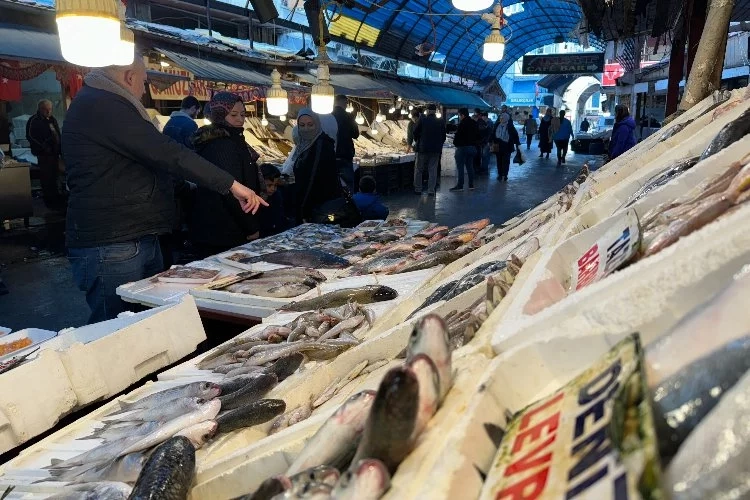Celal Safsoylu, the President of the Karataş Fisheries Cooperative, stated that the price of fish, which is caught off the coast of Karataş in Adana and sold for 100 liras per kilogram, increases by more than 200% until it reaches the dining table. He said, "The producers cannot make money, the intermediaries do.

Celal Safsoylu, the President of the Karataş Fisheries Cooperative, stated that the price of fish caught off the coast of Karataş in Adana and sold for 100 Turkish Liras per kilogram increases by more than 200% until it reaches the dining table. He said, "The producers cannot make money, the intermediaries do."
In the district of Karataş in Adana, which has a coastline on the Mediterranean, fishermen catch various fish species such as red mullet, sole, grouper, and silverfish. The fish, which are sold at prices ranging from 100 to 120 Turkish Liras per kilogram at local fish markets, are sent to Adana and neighboring provinces, where their prices rise to 200-300 Turkish Liras. Speaking to Ihlas News Agency, Celal Safsoylu, the President of the Karataş Fisheries Cooperative, said, "The prices of 100-120 Turkish Liras do not satisfy the producers, but the fish purchased from us at these prices are subject to a 200% increase until they reach the dining table. Both we and the citizens are victims. As a cooperative, since we don't have money, we cannot evaluate the fish of these fishermen."
"Intermediaries profit"
Safsoylu stated that intermediaries profit in the fish industry just like in agricultural products. "Unfortunately, the producers, who put forth the most effort and have the highest costs, are left alone in this matter. The producers cannot make money, but second and third parties profit, and the products increase in value by around 200-300% until they reach our tables," he said.
"Fish consumption should increase"
Safsoylu said that fish consumption should increase, stating, "Of course, we prefer our people to eat fish. At least three days a week, we should feed our children fish because it is rich in phosphorus and iodine and beneficial for bone development. Unfortunately, among world countries, we rank 7th in fish consumption."
Beware of illegal shrimp
Celal Safsoylu also warned about Iranian shrimp containing heavy metals and therefore illegally brought into the country, being sold in the market at half the price of local jumbo shrimp. He said that this practice harms both human health and the economy.